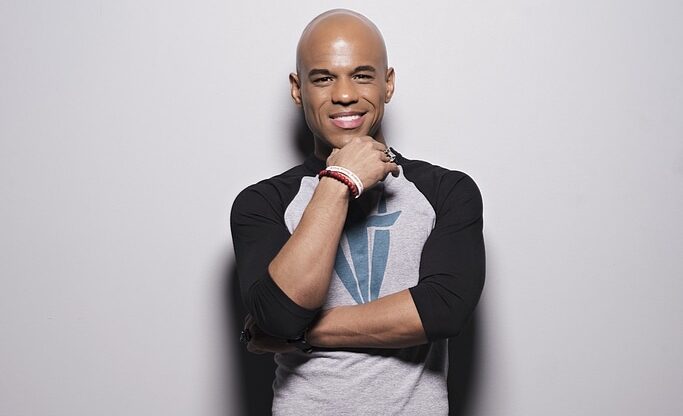Bishop Foreman, PhD., often called “The People’s Bishop,” founded and currently leads the Harvest Church in Aurora, CO, and is in the process of opening a new location in Atlanta, GA.
Harvest Church is a thriving, progressive, multicultural, multi-generational, non-denominational church that was planted from scratch with no financial benefactor or outside support whatsoever in a region of America often referred to as the “church planter’s graveyard.”
As an author, Bishop Foreman has written five books, including “Getting Your Finances in Order”, “Living in Favor Everyday,” a fifty-two week spiritual devotional, “Sins of the Fathers: Breaking Generational Curses” & “Evolutionaries,” which you can find on Amazon.
In 2008, Bishop Foreman launched the Harvest Foundation, which puts on community-based events to meet the practical needs of the people, including the annual Back to School event. He has been a counsellor and pastor to all levels of government officials, has had success with celebrity coaching, and frequently co-hosts TV and radio programs.
As an entrepreneur, Bishop Foreman has created a step-by-step course for building a successful business. He is considered one of Colorado’s most influential African Americans and has been inducted into the Colorado Gospel Hall of Fame as well as awarded Colorado’s Pastor of the Year award. October 16th is Bishop Foreman Day in Denver and Aurora, Colorado.
This mentoring series of interviews is brought to you in partnership with National Mentoring Day, taking place on the 27th of October each year to recognise and celebrate the benefits of mentorship.
Richtopia is shining a light on the invaluable contribution that mentoring makes.
Bishop Foreman: Full Interview

1. How has mentorship helped you in business and life?
Mentorship is everything to me. I believe that the goal of mentorship is to help others go further faster. Experience is not the greatest teacher – contrary to popular belief. It is the experience of someone else.
Through mentorship, you can learn through the successes, the failures, the mistakes of other individuals who have been successful and not have to repeat those negative aspects yourself.
2. Why is it important for people to pay attention to mentoring?
It’s important for people to pay attention to mentoring because mentorship imparts wisdom.
Wisdom is the appropriate application of knowledge. Wisdom helps you to get to your destination or your goal faster.
When you pay attention to mentorship, you get more done in a more expeditious fashion. The question really is, do you want to take 40 years to get there or 11 days?
3. In which ways can organisations use the process of mentoring to advance their workforce and society more effectively?
Firstly: Implement mentorship from day one with every new hire.
At the end of the day, when you mentor people, they may or may not stick with your organization.
For many, the risk associated with a person departing after having been mentored is a risk they don’t want to bear. I believe that we are built to pour into others. And if we are not pouring, we become stagnant water, and stagnant water stinks.
So again, number 1 – implement mentorship out of the gate.
Secondly: Create a culture of servant leadership wherein people see themselves as servants, not just employees, managers, or leaders.
When you see yourself as a servant, you don’t have a problem doing the small things just as effectively as the big things.
Lastly: I would say create a culture where everyone sees themselves as a student.
The greatest failures of current life when we view ourselves as experts instead of students.
And when we view ourselves as students, we can enjoy the process and journey of growth rather than being frustrated, angry, or deflated from that process.
4. What is your definition of success?
The definition of success is different for every person you ask. For me, success is accomplishing the goal. The question becomes “Did I have the right goal in the first place.”
Sometimes it’s not that we aim too high, and didn’t achieve that is a lack of success; it’s that we aim too low and we did achieve. It looks like success, but it was the wrong target.
So I would say, success is aiming at the right target and then hitting it.
5. If you had the chance to travel back in time and have two mentors from history, who would they be? And what would you want to learn from them?
Wow…one would definitely be Dr Martin Luther King, Jr. Without question; he rose to a place of prominence and leadership for a movement that directly impacts the life I live today.
Secondly, I would also say his counterpart, in some ways, Malcolm X. While they both had similar goals, they had different approaches. I believe that both of them would offer great insight into organizational management, media relations, dealing with a system that was essentially set up for your failure and yet still succeeding in your goals.
6. What steps do you believe people could take to become good mentors?
I: Don’t be afraid to communicate.
II: Don’t be afraid to be vulnerable in that communication and share your failures, share your losses, and share your vulnerabilities.
III: I would say it’s difficult to be what you cannot behold. So it’s important to make sure if you are going to be a leader, that you are following a leader also.
7. How do mentees best leverage the opportunities of mentoring?
This one is simple – be a relentless note taker. I don’t believe it’s possible to learn or grow simply based on memory. I am a big believer in notes, be them written or typed.
8. What excites you the most about mentoring in the 21st century?
Technology is what excites me the most. We now have the ability to connect virtually with anybody around the planet digitally. This is amazing because essentially the world has become “flat”.
What used to be a barrier, because of time, distance, or travel no longer exists. We can literally impact other cities, other countries with leadership and mentorship right from our laptop, computer or mobile device.
9. If you could share only one of your favourite quotes, which would it be? And why did you pick that one?
This one is easy. It’s from the late Dr Maya Angelou. She said,
When people show you who they are, believe them the first time.
Being a mentor of many and anyone who is mentored, I have discovered that sometimes in my belief in someone’s potential blinded me through the reality of who they were and how they wanted to operate.
Sometimes you can get so caught up in whom you hope they become; you ignore who it is they want to be, and that creates a clash.
Some people don’t want to improve, and it’s not your responsibility to force them to. Some people don’t want to change, and it’s not your responsibility to get them to.
10. We know mentoring is often beneficial; however, what are the harmful or risky types of mentoring people should know about too?
This is an insightful question. Sometimes, when you spend a lot of time with an individual, there can be levels of attraction that can develop, that sometimes fuel actions that a person may not be aware of.
This doesn’t even have to be a romantic attraction; it can simply be an attraction to a quality that blinds you to the areas you need to speak to as a mentor or be aware that you should modify for yourself as a mentee.
11. How can people go about finding the right mentors?
Asking. I believe you knock on every door that represents something you want to achieve in life and see what they say. The worst they can tell you is no, and no doesn’t mean never, it just means “not this way.”
12. Here’s one for a laugh: If you were hypothetically abducted by aliens and they made you their mentor, what would you start with first?
I would start first with understanding the ‘why’ behind the ‘what’ of why they abducted me. I think the greatest mentors simply ask amazing questions.
When you ask questions, it allows you to see how a person thinks, which gives you a prescription to help the person improve.
If you don’t understand their ‘why,’ you will never prescribe the correct ‘what,’ nor will you understand their’ what.’
13. Please summarise your mentoring experience in three words.
Practical, spiritual, fruitful.
14. How do you think mentoring can help with mental health issues?
That’s a unique question because as we all know, some mental health issues aren’t connected to behavioral health or emotional health, but require treatment that would be outside of the scope of a mentor.
I do believe a mentor can become a place of safety where an individual can openly communicate what it is their facing and dealing with, which in turn can be very helpful.
I think much of the stress, fear, anxiety and panic we encounter as human beings is directly related to our lack of safe places to communicate.
When you know you can communicate openly, honestly, and it is safe, it’s a game-changer.
15. Last, what is the one thing you want everyone to know about Bishop Foreman?
I am passionate about seeing lives changed. I believe my personal mission is to change lives.
Anything that gives me the opportunity to do that, I have a green light to proceed.
I think we are living in one of the greatest times in history and have an amazing opportunity to see the world improve one day at a time, one person at a time, one moment at a time.
I am living proof you can defy statistics and overcome systemic opposition, and I believe every person, regardless of their pedigree, can do the same.
![Mentoring Series: Bishop Kevin Foreman (Full Interview) [ep.2] ](https://richtopia.com/wp-content/uploads/2020/07/divider.png)
Have your say on #NationalMentoringDay
National Mentoring Day on Twitter


![Mentoring Series: Bishop Kevin Foreman (Full Interview) [ep.2] ](https://richtopia.com/wp-content/uploads/2020/07/divider.png)
Disclaimer: Richtopia is not an intermediary, broker/dealer, advisor, or exchange and does not provide services as such. The opinions about mentoring in this post are those of the interviewee and for informational purposes. Please conduct independent research when making decisions and do not rely on the views published on this page.




![Mentoring Series: Bishop Kevin Foreman (Full Interview) [ep.2] Richtopia newsletter bg](https://richtopia.com/wp-content/uploads/2020/11/email-subscriptions-background.webp)